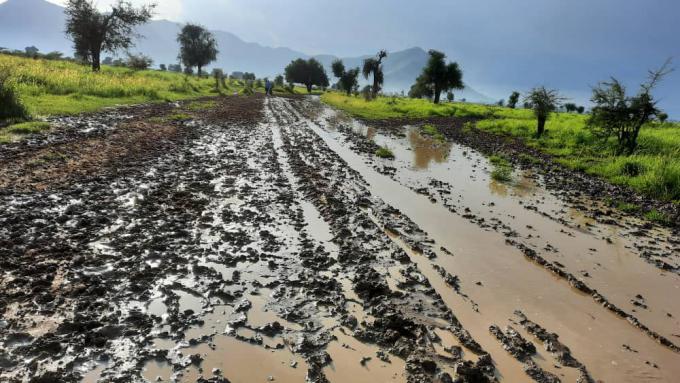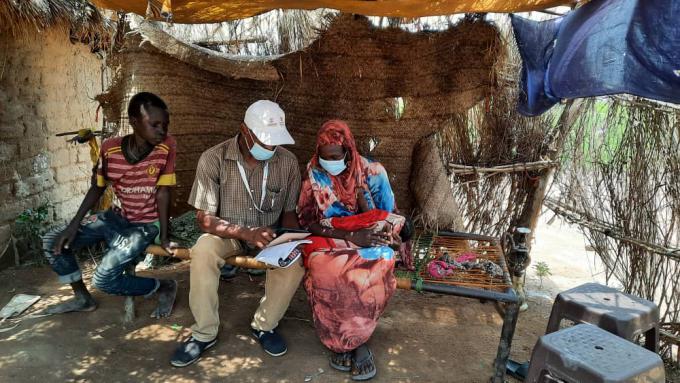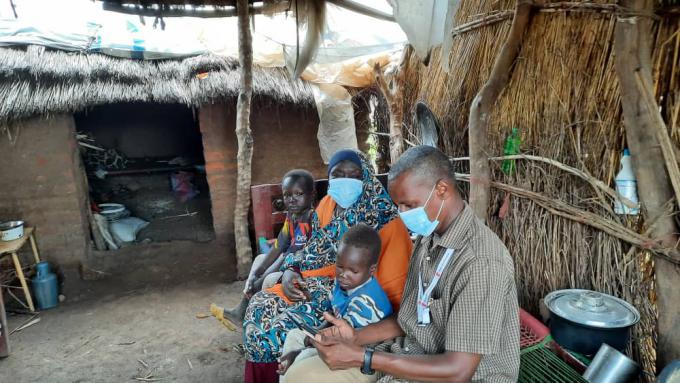Forming Footprints on Rugged Roads: How I Reached a Forgotten Returnee Community in Um Dual Village
Blog by: Mohamed Hashim, Voucher Cashier, Save the Children International in Sudan, South Kordoan
In my eight years of working at Save the Children, I have faced all sorts of trials and tests on the job – but this trip was something special. Last week I visited Talodi and surrounding villages in South Kordofan to conduct an assessment for the UNHCR-funded shelter project. It seems like a routine, simple part of the job - but as the trip unfolded on a particularly rainy day, I was faced with entirely new challenges.
How was I going to travel to reach beneficiaries and return to Talodi?

It all started when we arrived at Talodi, South Kordofan, and met with the government official to prepare for the implementation of the UNHCR shelters project. We learned from them that there is a village called Um Dual, and its current residents are returnees who are in a dire situation and need immediate intervention. After having to flee their homes a few years back due to conflict, they are now back trying to regain their lives and start over; we knew this meant that they needed our assistance as soon as possible – and we were ready to go.
However, this was easier said than done. We soon realized the rugged and muddy conditions of the road due to the rainy season prevents vehicles from moving and reaching most destinations. My colleagues and I decided this was not enough to stop us, so we decided the best option was to take motorcycle rides from Talodi.
At 8 AM, we departed, and at midday, we arrived.

There, we were able to meet with the community members and register them. At that point, we thought the hard part – reaching them – was over; however, the difficulties escalated when heavy rain started pouring. The roads got much worse, and the motorcycles were not able to drive through them. The mud forced us to walk on foot beside our motorcycles until we arrived back to Talodi around dusk, just before Maghrib prayers.
In the end, this is why the journey was worth it: when we arrived, it turned out that we are the first organization personnel to enter this area in nine years. People were overjoyed to see the organization show up for them because they were not expecting anyone to come through with these catastrophic conditions.

Despite the difficulties of the terrain, I knew then that this is what it takes to be a humanitarian. The road may be rough, but the results are seeing reactions and relief from community members. I feel fulfilled knowing I did the right thing going there because I know Um Dual's returnees need us in a critical phase of their lives. When we reach them despite the obstacles, it becomes more than being provided with assistance. It becomes about acknowledgment and hope. This is why the journey is always worth it.
 Sudan
Sudan